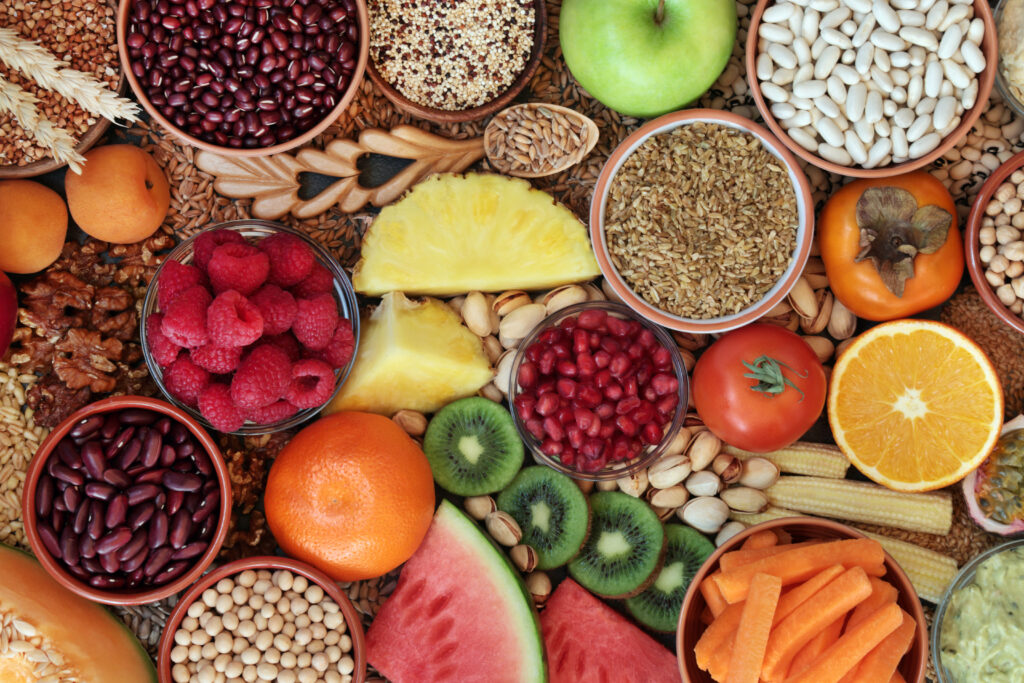
A diet that's high in processed and packaged convenience foods sends cholesterol levels skyrocketing. To lower bad cholesterol, limit trans fats found in biscuits, some breakfast sandwiches, microwave popcorn, doughnuts and fried fast foods; cut out salt by cooking with canola, safflower, sunflower or olive (extra virgin) oil.
Fruits like pears and apples have pectin, which can reduce LDL cholesterol. Add two servings of berries a day to your diet.
1. Green Tea
The leaves of the green tea plant, Camellia sinensis, are steamed, pan fried or roasted to produce this popular beverage. Green tea has a variety of health-promoting benefits including improving mental alertness, relieving digestive symptoms and headaches, regulating blood sugar, and promoting weight loss. It also contains a group of chemicals known as catechins, particularly epicatechin and epigallocatechin-3-gallate (EGCG), which have antimicrobial, antioxidant, and anticancer properties.
Several observational studies suggest that the regular consumption of green tea and black tea reduces the risk for atherosclerosis, coronary heart disease and stroke in people with normal or borderline cholesterol levels. Among other things, these protective effects have been linked to the high levels of polyphenols in green tea and the fact that they inhibit oxidation of LDL (“bad”) cholesterol in the bloodstream. However, further research is needed to define the magnitude of these effects and establish safe consumption levels, as well as elucidate the mechanism of action.
2. Oats
The soluble fibre beta-glucan in oats, known as b-glucan helps reduce cholesterol levels. When b-glucan is eaten, it binds excess cholesterol in the gut and prevents it from being reabsorbed into the bloodstream. This causes the liver to produce more bile, which then flushes out cholesterol from the body.
You can find oats in whole-grain breakfast cereals and savory dishes like oat risotto, where it replaces rice. You can also use oat bran as a thickener in soups and baked goods.
Oats (Avena sativa) is an important grain crop worldwide that provides proteins, starches and other valuable nutrients. It also contains phytochemicals such as avenanthramides, which may help lower blood pressure levels by increasing the production of nitric oxide. This molecule dilates (widens) blood vessels and promotes healthy circulation.
3. Olive Oil
Olive oil is high in monounsaturated fats and polyunsaturated fats, which help improve cholesterol levels. Olive oil also contains antioxidants, which protect against atherosclerosis. Studies show that people who eat a Mediterranean diet have a lower risk of heart disease.
The oil from the olive is a healthy replacement for butter, animal fats and processed vegetable oils such as canola, corn or safflower oils. The best olive oil is extra virgin (EVOO) and is unrefined. It is pressed or extracted from the olive using mechanical and physical processes only and does not use any chemicals. It is also known as first-pressed or cold-pressed and is often referred to as pure or light olive oil.
The Pritikin Program recommends EVOO in small amounts as part of a healthful eating plan that emphasizes whole plants. It can be used for sauteing or frying in moderation as long as the oil is not heated for prolonged periods of time because heating the olive oil can produce toxic substances, including acrolein.
4. Nuts
Nuts pack a power punch of protein, fibre and healthy fats, which can help lower total and "bad" LDL cholesterol while raising levels of "good" HDL cholesterol. They contain a combination of monounsaturated and polyunsaturated fats. [1] The Adventist Health Study and other studies have reported that regular nut consumption is associated with a reduction in cardiovascular disease.
They are high in the amino acid arginine, which helps your body produce nitric oxide, relaxing constricted blood vessels. They are rich in vitamin E, magnesium and folate. They are also good sources of zinc, potassium and selenium.
Choose raw unsalted nuts or dry roasted nuts without added salt. Avoid salted, chocolate dipped and fried nuts, as they are often high in sodium. If you like, add a sprinkle of toasted or roasted nuts to salads, soups and on top of pasta and pizza. This will give you a more flavourful snack, while saving calories and adding crunch.





